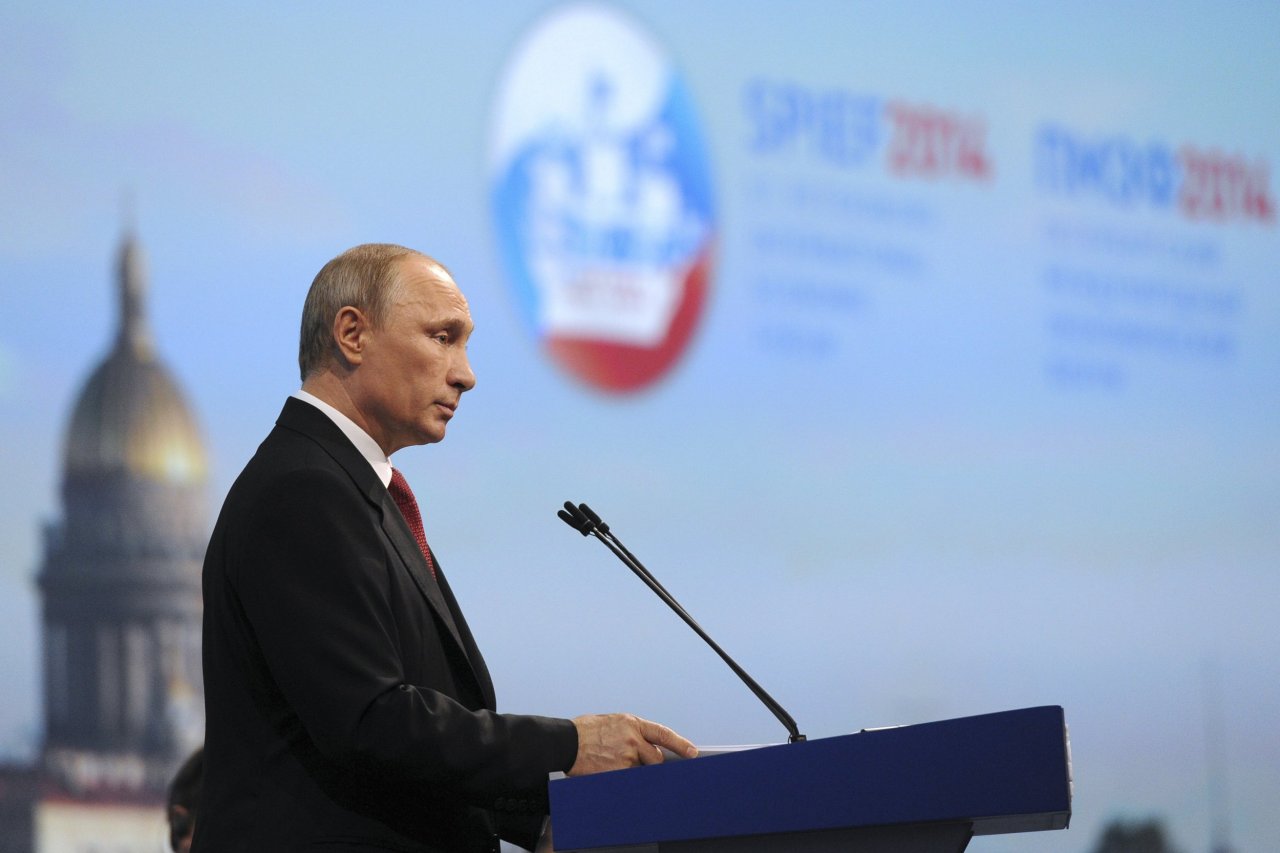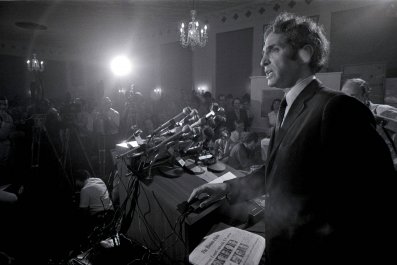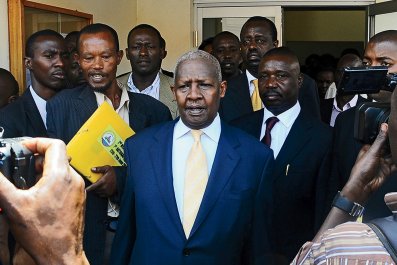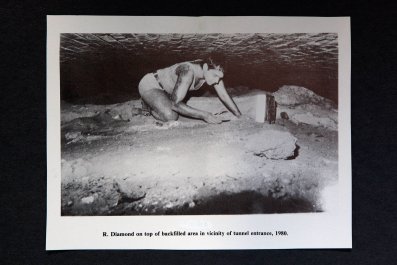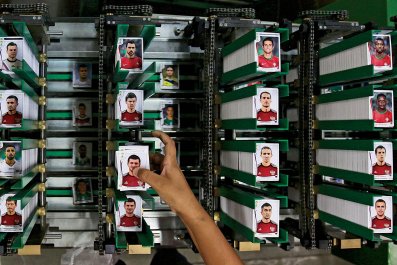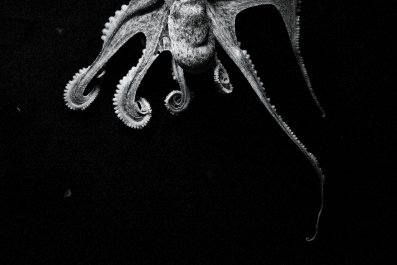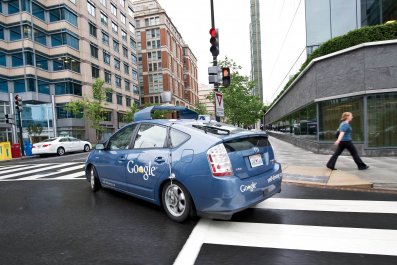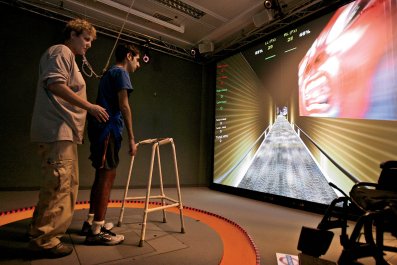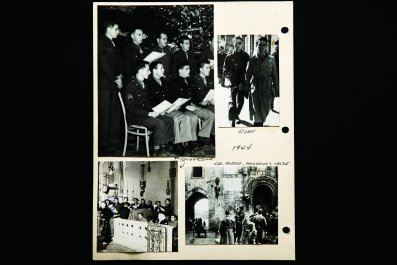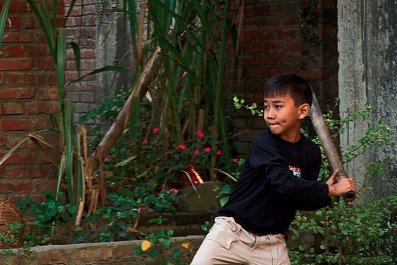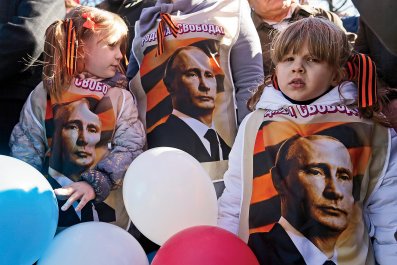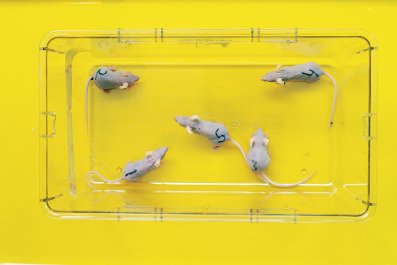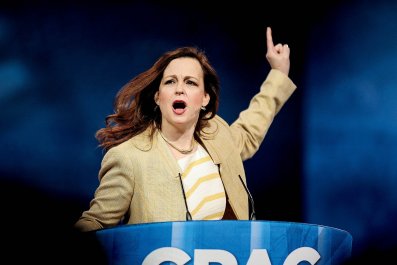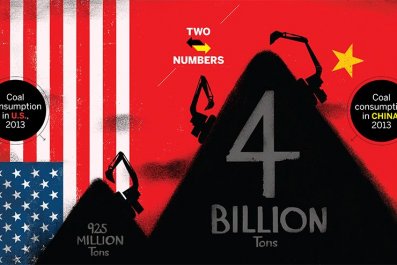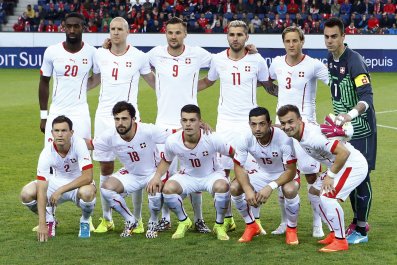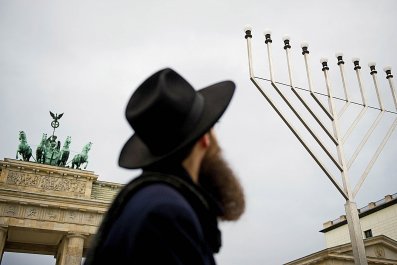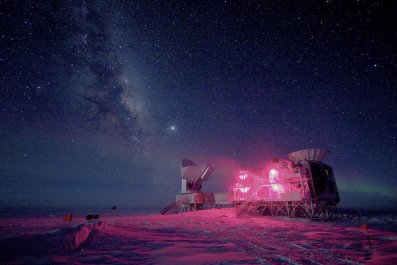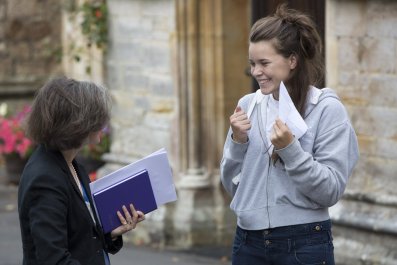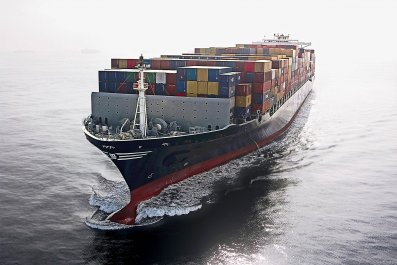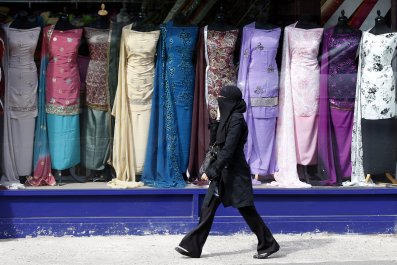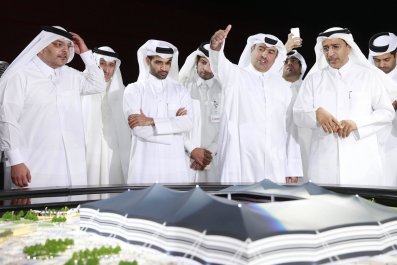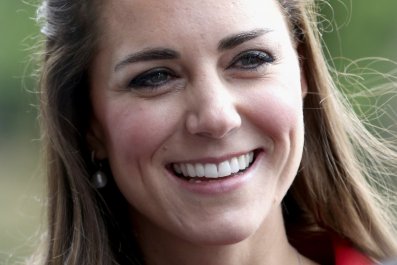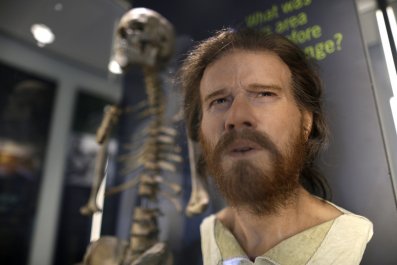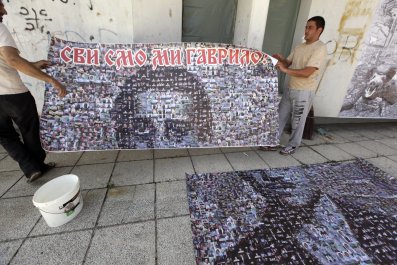On the face of it, the story sounds familiar. Vladimir Putin's nostalgia for the greatness of the Soviet Union, his crackdowns on opponents, his defiant insistence that Russia can make her own way in the world. All these have been constants of his 14-year rule. But the past few weeks since Crimea was annexed by Russia have seen Putin embark on something of a different order than has gone before. For the first time since the fall of the Soviet Union, the Kremlin is overtly campaigning to cut Russia off from the world. More, Putin is building a state ideology based on the rejection of Western systems and values and the demonisation of internal enemies and traitors.
Moscow's descent into self-isolation has been precipitous. Over the past three months alone, the Kremlin and its loyal legislators in the State Duma have brought the numbers of Russian State employees banned from leaving the country for security reasons to nearly five million; they have introduced criminal penalties for criticising the State-approved version of history; they have introduced compulsory registration for citizens with dual nationality and forcibly labelled all non-governmental organisations with foreign funding "foreign agents"; they have made bloggers subject to draconian "anti-extremism" laws – which include promoting anti-government protest. Senior officials have discussed restricting access to Facebook, Skype, YouTube and Twitter, and mooted setting up a Russian-only internet. The last surviving handful of independent websites and an internet-based TV station have been summarily shuttered – and when one site, grani.ru, challenged the ban, a Moscow court ruled that the authorities "did not have to explain to the websites why they were blocked". Bloggers with more than 3000 followers have to register on a Federal Security Service database.
At the same time, Putin has ordered his Central Bank to set up a Russian-based credit card processing system to rival Visa and MasterCard, and government-employed programmers to create a State-run internet search engine called Sputnik. The government has banned the US-based Global Positioning System from setting up stations in Russia and has boosted a Russian-made rival, Glonass.
In a nutshell, Putin's philosophy is based on the idea that "Russianness is being assailed from without," says Mark Galeotti, a professor at New York University – but Putin's message is that "we can cut ourselves off from global currents... We get to define who we are."
Putin's conservative and nationalist ideology has been several years in the making – but has come into sharp relief since Crimea. "Russia is not Europe," the Culture Ministry officially announced last month. Putin has also vociferously denounced Western concepts of tolerance and multiculturalism, describing the West's "so-called tolerance" as "infertile and sexless."
Conchita Wurst's victory at the Eurovision Song Contest gave Russia's homophobic legislators a field day, with Vitaly Milonov, author of recent Russian laws outlawing pro-gay "propaganda" demanding that Russia boycott the "Sodomites' show". But a key part of the Kremlin's many-pronged campaign to control the lives and ideas of Russian citizens is to "create an 'other' – gays, immigrants, multiculturalism, the West, fascism," says Sean Guillory of the University of Pittsburgh's Center for Russian and Eastern European Studies. "And by exclusion and demonisation of the 'other' you consolidate society against threats... It defines who is a friend and who is an enemy, who we are, and who are the others."
The Kremlin's campaign to ban and discourage Russians from travelling abroad showcases the paranoid mood. In April the Russian Foreign Ministry "strongly recommended" that all Russian citizens "refrain from travelling abroad, particularly to countries that have extradition treaties with the US," lest they fall victim to a supposed US "hunt" for Russian citizens in response to Moscow's annexation of Crimea. The ministry warned that "US-style justice is biased against Russian citizens" – citing arms dealer Viktor Bout and attempted drug smuggler Konstantin Yaroshenko as examples. Russian tourists could be "effectively kidnapped and transported to the US" to face trial "on the basis of, as a rule, dubious charges,", according to the ministry. The list includes most countries in the world, including popular Russian vacation spots Turkey and Egypt – but leaves Russians free to travel in Andorra, the Vatican, a handful of Balkan and African nations, as well as Syria, Saudi Arabia and Iran, as well as China, Indonesia and North Korea. Recent legislation also imposed a blanket ban on all employees of the Interior Ministry from leaving Russia – ostensibly lest they reveal national secrets. Last month all employees of the Prosecutor's Office were required to hand in their passports and seek special authorisation for holidays abroad, with travel permitted to only a handful of approved countries.
"It is far easier to cultivate an image of the country as a besieged fortress when military personnel, the police and intelligence agencies are unable to see the outside world with their own eyes," says Vladimir Ryzhkov, a former opposition Duma member. Lawmakers are now discussing extending travel bans to draft-dodgers – which includes some 92% of eligible 18 year olds in any given year. And rules preventing debtors from leaving the country – which in the first quarter of this year affected 190,000 people with unpaid parking fines to alimony delinquents and worse – could be extended to the regime's opponents who face draconian fines for participating in protests or speaking against the State, or the Church, online. Journalist Boris Stomakhin, for instance, faces up to eight years in prison for "inciting hatred of Orthodox believers by using an insulting term for the Almighty" and "justifying the actions of the terrorists who killed Tsar Alexander II" – which took place in 1881.
Andrei Lugovoi, the ultranationalist deputy responsible for drafting the rules on declaring dual citizenship, leaves no doubt that he considers Russians with second passports a "betrayal of national interests" and they should ultimately be outlawed. "Russia's enemies are constantly looking for weak spots in our ranks," Lugovoi wrote in his blog, blaming critics of the government for "seeking to disrupt normal life in Russia", supported and guided by Western intelligence agencies. Lugovoi is himself a former KGB officer and is wanted in the UK for his alleged role in the murder of defector Alexander Litvinenko by polonium poisoning in London in 2006. The same paranoid spirit pervades rules branding all NGOs which receive funding from abroad as "foreign agents". "These people are suspected of disloyalty by default," says Svetlana Gannushkina of the group Memorial, which chronicles human rights abuses from Stalin's gulag to racist police in today's Moscow.
The sad truth is that most Russians won't care very much about being cut off from the world – according to a 2012 study by Moscow's Levada centre, fully 80% of Russians have never travelled outside the former Soviet Union and only 5% speak a foreign language at conversational level. But the most damaging result of the restrictions crackdown, says Ryzhkov, will be to quicken a brain drain of the smartest and most globalised Russians – exactly the kind of people Dmitry Medvedev tried to encourage to return to Russia during his short stand-in presidency between Putin's second and third terms.
"As many as five million people have left Russia in the last 20 years, among them 20,000 PhD holders," says Ryzhkov. "Judging from the current crackdown and the limits imposed on Russians' remaining freedoms, the Kremlin is finding it increasingly difficult to hold on to those who remain."
One of the latest wave of emigres is Pavel Durov, creator of the popular Russian social network Vkontakte. He left Russia last month after months of pressure from the authorities to hand over personal information on the organisers of a group in support of the Ukrainian protest movement on Vkontakte, and to ban the blog of anti-corruption activist Alexei Navalny. "I am out of Russia and have no plans to go back," Durov told Techcrunch.com. "I am afraid there is no going back, not after I publicly refused to cooperate with the authorities."
Few Russians will be sorry to see him go. One of the sadly surprising things about the strident nationalism that accompanied the Ukraine crisis and Crimean annexation is how many of the emerging middle class have gone along with it. Three years ago, up to 100,000 largely educated and internet-literate citizens came out on the streets of Moscow to protest rigged Duma elections in the biggest challenge to the Kremlin since the end of the Soviet Union. Now, polls regularly show that swathes of Russia's elite -support Putin's new nationalism. A study by Russia's Academy of Sciences showed that 79% of Russia's middle class said the State "deserves support despite its many flaws", 78% said that "stability was more important than change" and 49% said Russia needed a "firm hand" to keep order. Even more depressing for the tiny liberal opposition, the study found that of the 40% of the population judged "middle class" by the survey, only 13% were entrepreneurs and over half were employed by the government.
What's clear is that Putin has given up on trying to please Russia's tiny urban, technocratic, aspirational constituency and has turned full-on to appeal to Russia's blue-collar voters. These are the very people who are most scared of the economic impact of globalisation and immigration – which is why Putin's protectionist, conservative and technophobic message goes down so well (it also explains in part why he's so admired by American Tea Party conservatives like Patrick Buchanan, whose electoral base is less-educated, white, working-class Americans).
The pre-Crimea Putin was pragmatic: his priority was stability and prosperity. If that meant squashing the odd protest and oligarch along the way, he did it. But post-Crimea, Putin has become a different kind of leader, motivated by ideology, regardless of the cost to Russia's economic wellbeing. Never mind that Russia accounts for less than 2% of global GDP – Putin apparently believes that Russia doesn't need Visa cards, international money markets, holidays abroad, membership of the G8 or the Council of Europe, and that his citizens should be sheltered from corrupt Western values and the corrosive influence of the internet. Putin is striking out on a uniquely Russian path – even if it leads to isolation, capital flight and the loss of his country's brightest and best.



